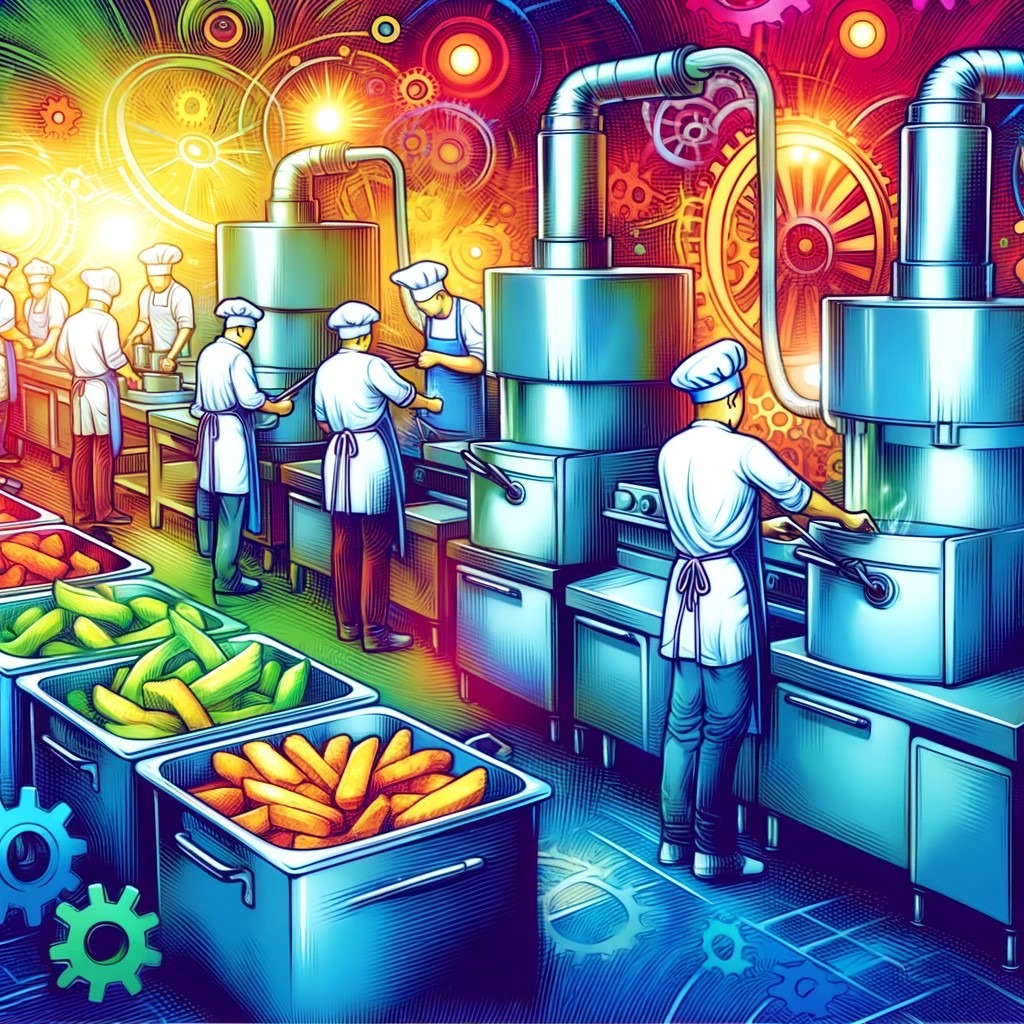Introduction: In today’s eco-conscious world, the journey of used cooking oil from fryer to fuel represents a remarkable example of sustainability in action. However, this process isn’t just a win for the environment—it’s also a crucial component in maintaining food safety standards within the food industry. By recycling used cooking oil, businesses can ensure that their operations are not only environmentally friendly but also uphold the highest standards of food safety.
This initiative goes beyond merely disposing of waste responsibly. It involves a series of meticulous steps designed to safeguard the quality of recycled oil, ensuring it meets stringent safety criteria before it’s repurposed into biofuel or other products. Let’s delve into how this process works, highlighting the vital role it plays in supporting both our planet and public health.
Key Takeaways
- Safety Measures: Implementing rigorous safety protocols is essential in the oil recycling process, ensuring the recycled product is free from contaminants and safe for further use.
- Environmental Benefits: Recycling used cooking oil significantly reduces waste, lowers greenhouse gas emissions, and contributes to the production of sustainable biofuel, highlighting its role in promoting environmental sustainability.
- Economic Advantages: Businesses benefit economically by participating in cooking oil recycling programs through cost savings on waste disposal and potentially earning from the sale of used oil.
- Quality Assurance: Through meticulous processing and testing, recycled cooking oil maintains a high standard of quality, ensuring it’s safe for repurposing.
- Partnership Opportunities: Working with a dedicated recycling partner like Mopac helps businesses navigate the complexities of oil recycling, ensuring compliance with regulations and contributing to sustainability efforts.
Collection and Transportation
The first step in the recycling journey begins with the safe collection and transportation of used cooking oil. Specialized containers are provided to restaurants and food service establishments, designed to prevent leaks and spills. They help in maintaining hygiene and safety standards. Mopac’s fleet of collection vehicles, equipped with the latest technology, efficiently and safely transports used oil.
Filtration and Treatment
Upon arrival at the recycling center, the used cooking oil undergoes a rigorous filtration process. This step is crucial for removing food particles and other impurities, which could compromise the quality and safety of the final product. Then, to further purify the oil, we apply advanced treatment methods, including centrifugation and heating processes that eliminate any remaining contaminants.
Testing for Quality and Safety
Before the recycled oil is repurposed, it must meet strict quality and safety standards. Samples of the cleaned oil are subjected to a series of tests in a state-of-the-art laboratory. These tests check for the presence of harmful substances. They ensure that the oil’s composition is suitable for its intended use, either biofuel or in other industrial applications.
Repurposing into Biofuel
The final step in the oil recycling process is converting the purified oil into biofuel. This sustainable energy source plays a significant role in reducing carbon emissions and dependence on fossil fuels. The conversion process involves transforming the triglycerides in the oil into fatty acid methyl esters (FAME), commonly known as biodiesel. This process is transesterification. Then, the biodiesel blends with conventional diesel or powers vehicles and heats homes in its pure form.
Conclusion
The transformation of used cooking oil into valuable biofuel is an environmental triumph. It’s a testament to the commitment of businesses to reducing their carbon footprint. Establishments that recycle contribute to a greener planet and ensure the health and safety of their customers. Mopac stands at the forefront of this initiative, offering comprehensive recycling solutions. We are actively moving toward a future where we manage every aspect of our food consumption responsibly and sustainably.
FAQs
- What are the environmental benefits of recycling cooking oil? Recycling used cooking oil reduces landfill waste cuts greenhouse gas emissions, and contributes to the production of clean, renewable energy.
- How does recycling used cooking oil ensure food safety? Recycling eliminates contaminants from used oil, ensuring it meets safety standards for its next use, preventing foodborne illnesses.
- Can any type of cooking oil be recycled? You can recycle most types of vegetable and animal-based oils, including canola, peanut, palm, and lard. Ensure to store the oil properly and keep it uncontaminated by non-food materials.
- What products are made from recycled cooking oil? Animal feed, industrial lubricants, and personal care products can use recycled cooking oil.
- How can businesses benefit from participating in cooking oil recycling programs? Businesses can reduce waste disposal costs, earn from selling used oil, and enhance their sustainability credentials, attracting eco-conscious customers.
At Mopac, we value the relationship we develop with our customers, creating partnerships focused on efficiency and sustainability. Our team offers reliable, consultative services tailored to meet your unique needs. Let us help you make a meaningful impact with our comprehensive collection & recycling solutions.




